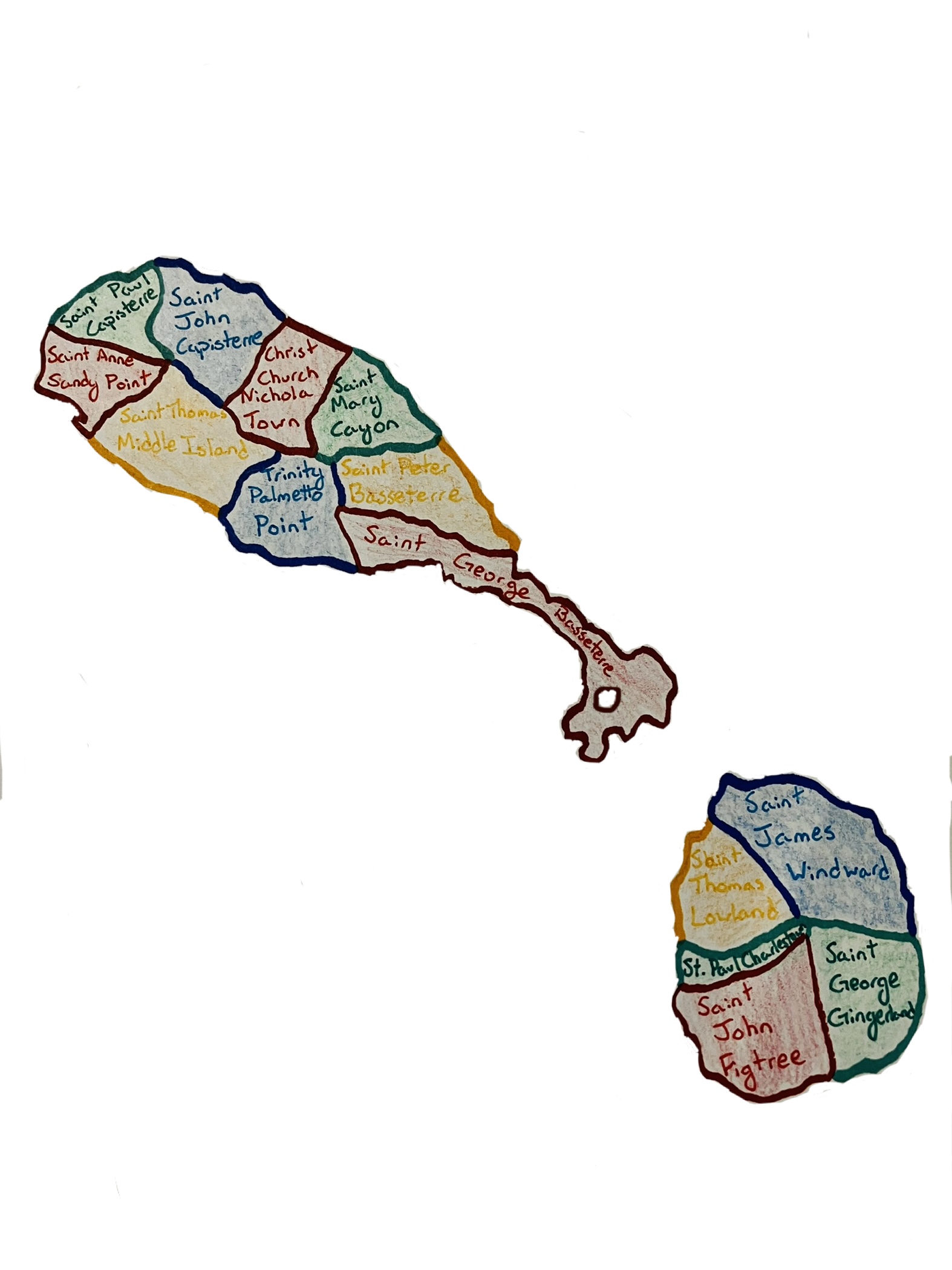The Caribbean islands of Saint Kitts and Nevis are having a snap general election today, August 5, in response to the collapse of the Team Unity coalition, a group of three parties including that of Prime Minister Timothy Harris.
Despite holding nine out of the 11 elected seats of the unicameral National Assembly in the 2020 election, Team Unity’s People’s Action Movement (PAM), Concerned Citizens’ Movement (CCM), and People’s Labour Party (PLP) splintered after one-time allies sought a motion of no confidence in the prime minister.
Despite attempts to resolve the political crisis without calling an election three years before the next one was scheduled, there proved not to be a solution to the uncertainty in the capital of Basseterre without holding an election. That election is now transpiring.
The people of Saint Kitts and Nevis have had less than 90 days to regroup from the dissolution of parliament and the calling of a snap election, and it remains to be seen what the outcome of such political expeditiousness will be.
Timothy Harris and the People’s Labour Party

Timothy Harris became prime minister after defeating Dr. Denzil Douglas in 2015, a Saint Kitts and Nevis Labour Party (SKNLP) member and prime minister since 1995. Mr. Harris was only the third prime minister since Saint Kitts and Nevis’s 1983 independence from the United Kingdom.
Mr. Harris became a nationally-recognized politician after founding the PLP in 2013. This came as a result of being fired from Dr. Douglas’s cabinet because of their fundamentally different politics.
Running for the seat in Saint Christopher (Saint Kitts) #7, Mr. Harris led Team Unity to a nationwide victory, securing seven of the 11 electable seats. This success propelled him into the prime ministry, a position that he defended in the 2020 general election.
All appeared to be going well for Prime Minister Harris, at least until it publicly became clear that the Team Unity that ushered him to the highest elected position in the country was prepared to bring him down.
Team Unity’s no confidence
Comprising PAM, CCM, and PLP members of parliament, Team Unity held an overwhelming majority in the National Assembly. Notably, Prime Minister Harris’s PLP only held two of Team Unity’s nine seats.
In 2021, Mr. Harris had to deal with protests against COVID-19 restrictions, an attack at a beach bar that left two dead, and an overall high homicide rate per capita. These difficulties certainly strained the relationship between Mr. Harris and his coalition, and these troubles became too much in May 2022, when a motion of no confidence was scheduled to be held.
A backup plan was formed among the opposition to make Shawn Richards, leader of PAM, the next prime minister. Governor-General Sir Tapley Seaton could not carry out this desire, saying that he did not have the authority to dismiss a prime minister barring a successful motion of no confidence.
Instead of taking his chances with his coalition, Mr. Harris dissolved parliament on May 11 and called for a snap general election, which must occur within 90 days of the dissolution.
Snap election
Of the fifteen National Assembly seats, four are selected by the Governor-General, an unelected position appointed by the monarch. Because St. Kitts and Nevis remains a Commonwealth state, Queen Elizabeth II of the United Kingdom appointed Sir Tapley Seaton to this position on September 1, 2015, after the 2015 elections that brought Mr. Harris to the head of government.
Besides those four seats, the remaining eleven seats of the National Assembly are up for grabs in this snap election. Nearly every party is contesting every seat available, making serious government shakeup a very real possibility.
Timothy Harris is defending his position as prime minister, hoping to prove to his coalition that the people that brought him to power in 2015 still have faith in his ability to govern.
Whatever the outcome of this election, the winners of each seat (and of the prime ministry) will likely govern for five years, the length of an ordinary term. Saint Kittian and Nevisian politics is experiencing the second shakeup as a result of Timothy Harris entering the scene, first by challenging and defeating his former boss for prime minister, and now by attempting to both circumvent a motion of no confidence and maintain his position at the head of government.
International significance

Despite having a population of just over 50,000, Saint Kitts and Nevis does have a role to play in one key arena: China-Taiwan tensions. While it may be surprising that a small country on the other side of the world from these two states has influence in the conflict, St. Kitts and Nevis has a significant diplomatic history with Taiwan.
Taiwan was the first international ally of St. Kitts and Nevis following its independence, and in turn, St. Kitts and Nevis has recognized Taiwan as its own country since it became a country itself in 1983.
On April 16, 2019, President Tsai Ing-wen of Taiwan gave the Order of Propitious Clouds with Special Grand Cordon, the highest grade of the award, to Prime Minister Timothy Harris. Both states’ leaders strongly support each others’ democracies, and this award is a clear reflection of that.
While a small consolation, Taiwan can know that it has a strong ally in the Caribbean.
· · ·
The results of Saint Kitts and Nevis’s snap election will soon be known, and despite being a small country, the ripples of this election will surely be felt outside of its national borders.

